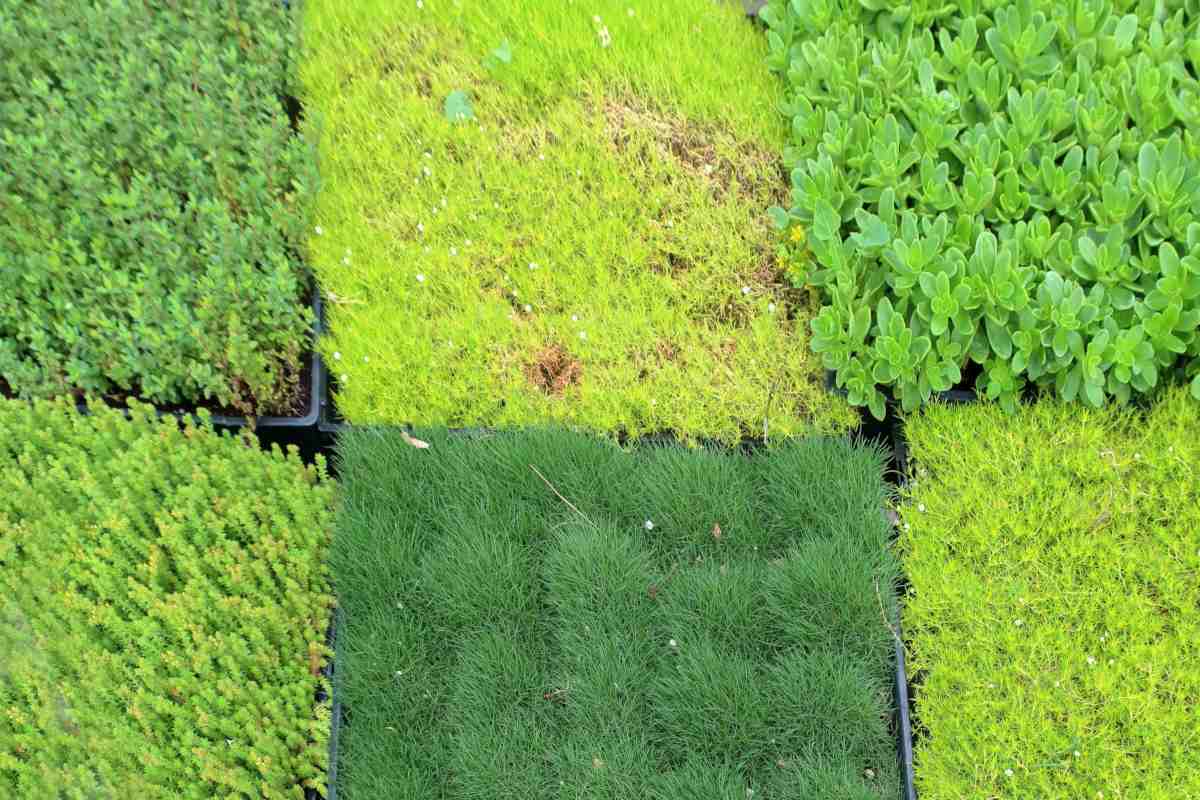Pin On Small Yards

Cover Grass alternatives for the lawn, surprise your neighbors and cut out chores! (1200x800)
Table of Contents
Why Choose Alternatives to Grass?
Grass lawns require a lot of maintenance, from mowing to watering to fertilizing. And in many areas, water is becoming an increasingly scarce resource, making it more important than ever to find low-maintenance, drought-tolerant alternatives to traditional grass lawns.
Fortunately, there are many grass alternatives that are not only easier to care for, but also more environmentally friendly. Whether you're looking for a ground cover that requires minimal maintenance or a garden that attracts pollinators and other wildlife, there's an alternative to grass that's right for you.
Clover
Clover is a great alternative to grass, especially for those who want a low-maintenance lawn. It requires less water and fertilizer than grass, and it doesn't need to be mowed as often. Plus, it attracts pollinators like bees and butterflies, which can help your garden thrive.
One of the biggest benefits of clover is that it is nitrogen-fixing, which means that it takes nitrogen from the air and converts it into a form that plants can use. This means that you don't need to use as much fertilizer on your lawn, which can save you money and reduce your environmental impact.
Moss
Moss is another low-maintenance alternative to grass that can thrive in shady areas where grass might struggle. It doesn't need to be mowed, and it can grow in a variety of soil types, including poor soil that might not support grass or other plants.
In addition to being low-maintenance, moss is also great for the environment. It helps to absorb carbon dioxide from the atmosphere, which can help to mitigate climate change. And because it doesn't need to be watered as often as grass, it can help to conserve water resources.
Thyme
Thyme is a great option for those who want a low-maintenance lawn that also smells great. It's a ground cover that doesn't need to be mowed, and it can grow in a variety of soil types. Plus, it's drought-tolerant, which means that it requires less water than grass.
One of the biggest benefits of thyme is its aroma. When you walk on it, the leaves release a pleasant scent that can be especially enjoyable in the spring and summer months. Plus, it can attract pollinators like bees and butterflies, which can help your garden thrive.
Sedum
Sedum is a great option for those who want a low-maintenance lawn that also looks great. It's a succulent that doesn't need to be mowed, and it can grow in a variety of soil types. Plus, it's drought-tolerant, which means that it requires less water than grass.
One of the biggest benefits of sedum is its appearance. It comes in a variety of colors and textures, from green to purple to pink, and it can add visual interest to your lawn or garden. Plus, it's great for the environment, as it helps to absorb carbon dioxide from the atmosphere.
Wildflowers
Wildflowers are a great option for those who want a low-maintenance lawn that also attracts pollinators and other wildlife. They require less water and fertilizer than grass, and they don't need to be mowed as often. Plus, they can add color and visual interest to your lawn or garden.
One of the biggest benefits of wildflowers is their ability to attract pollinators like bees and butterflies. These insects play a crucial role in pollinating plants, which helps to ensure a healthy ecosystem. And because they require less water than grass, they can help to conserve water resources.
Conclusion
There are many great grass alternatives that are low-maintenance, environmentally friendly, and visually appealing. Whether you choose clover, moss, thyme, sedum, wildflowers, or another alternative, you can create a lawn or garden that requires less water, fertilizer, and maintenance than traditional grass lawns. And by doing so, you can help to conserve resources and support a healthy ecosystem.
Post a Comment for "Pin On Small Yards"